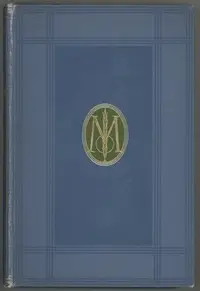"Beauchamp's Career — Volume 3" by George Meredith delves into the world of late 19th-century politics, following Captain Nevil Beauchamp’s tumultuous journey as a young, idealistic politician in the borough of Bevisham. The novel explores Beauchamp's struggles as he confronts the messy realities of electioneering, navigating the tricky waters of liberalism, political alliances, and personal attachments, all while striving to represent the people's needs. Beginning with the chaotic election environment, Beauchamp interacts with figures like the nonchalant Lord Palmet, grapples with his ally Mr. Cougham, and experiences the awkward process of vote canvassing, revealing the absurdity of the electoral system. As Beauchamp campaigns, he grapples with his ideas on governance and society, while wrestling with his romantic feelings for Miss Denham, setting the stage for a story woven with idealism, personal ambition, and conflicting social expectations.

Beauchamp's Career — Volume 3
By George Meredith
A young politician’s lofty ideals are tested when he dives headfirst into the complicated and often absurd world of 19th-century British politics and romance.
Summary
About the AuthorGeorge Meredith was an English novelist and poet of the Victorian era. At first, his focus was poetry, influenced by John Keats among others, but Meredith gradually established a reputation as a novelist. The Ordeal of Richard Feverel (1859) briefly scandalised Victorian literary circles. Of his later novels, the most enduring is The Egoist (1879), though in his lifetime his greatest success was Diana of the Crossways (1885). His novels were innovative in their attention to characters' psychology, and also portrayed social change. His style, in both poetry and prose, was noted for its syntactic complexity; Oscar Wilde likened it to "chaos illumined by brilliant flashes of lightning". Meredith was an encourager of other novelists, as well as an influence on them; among those to benefit were Robert Louis Stevenson and George Gissing. Meredith was nominated for the Nobel Prize in Literature seven times.
George Meredith was an English novelist and poet of the Victorian era. At first, his focus was poetry, influenced by John Keats among others, but Meredith gradually established a reputation as a novelist. The Ordeal of Richard Feverel (1859) briefly scandalised Victorian literary circles. Of his later novels, the most enduring is The Egoist (1879), though in his lifetime his greatest success was Diana of the Crossways (1885). His novels were innovative in their attention to characters' psychology, and also portrayed social change. His style, in both poetry and prose, was noted for its syntactic complexity; Oscar Wilde likened it to "chaos illumined by brilliant flashes of lightning". Meredith was an encourager of other novelists, as well as an influence on them; among those to benefit were Robert Louis Stevenson and George Gissing. Meredith was nominated for the Nobel Prize in Literature seven times.












